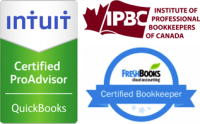As soon as the government started talking about tax reforms for corporations who used income sprinkling as a tax saving strategy small business owners across Canada started to worry about the implications these impending changes would have on them.
Before we dive in and give you the full ins and outs of this tax law change, who it impacts, and what it means for small business owners we want to start by saying that majority of our small business clients will not be impacted by these changes. Those impacted the most are high-income earning professionals, such as Doctors and Lawyers, who have been income splitting with a spouse who is not actively working in their business.
What is income sprinkling?
Income sprinkling aka income splitting is a tax strategy commonly used by higher-income business owners or incorporated professionals to help them personally access more funds from their corporation without the high tax bill. To implement this strategy the corporation pays out company dividends to a lower earning family member of the business owner or incorporated professional, in most cases a spouse or child. The family member receiving the funds is taxed at their tax rate, which is lower than the higher income earners tax rate.
The existing law
The original law around income sprinkling/splitting was the Tax on Split Income (TOSI) rule which applied the highest marginal tax rate to income that was split with a family member under the age of 18. Commonly known as the “Kiddie Tax” this law had not been extended to family members 18 or over.
The New Law
You can probably already see the writing on the wall and if you assumed the new law extends the principles of the “Kiddie Tax” to all family members 18 and over who receive dividend payments from the corporation without actually being an active member of the business, you would be correct.
Exclusions
It should be noted that there are some exceptions to the rule:
- It doesn’t apply to salaries paid to family members.
- If you are income splitting with your spouse and you are aged 65 years and over you are exempt.
- If your family member works consistently in the business 20+ hours per week during its operations within the tax year or can show that they have consistently worked within the business over the past 5 years they will be exempt.
- If you are 25 or over and you hold Excluded Shares in the corporation and the corporation is not a professional corporation or a business that provides services.
What it means for you
For a majority of small business owners, these changes don’t pose a significant impact. So long as your family member is actively working within the business and can provide documentation to prove that fact the high tax bracket won’t be applied.
For a lot of incorporated professionals that have been income splitting with a spouse who does not actively work in the business these changes will have a significant impact on their tax saving strategy.



